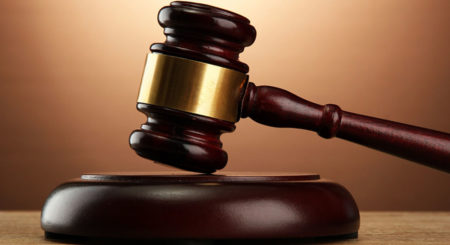Parochially, the judgment of Court of Appeal in 2016 against the Lagos State government per Justice A.B. Gumel which affirmed wearing of Hijabs in public schools would be in favour of the dramatis personae; a judgment which the court never envisaged could one day affect the judiciary. Hence, a great lesson on fallacious decisions and actions. By the appellate court’s verdict, students now have unfettered rights to wear hijab in public schools that are distinct from missionary schools pursuant to fundamental human rights, and unconsciously, the court set a wrong precedent forgetting that folks that live in glass houses do not throw stones. Incidentally, the stones first landed on the bar. It’s therefore indicates that the appellate decision may have to be challenged at the apex court for a clearer position. Who takes the blame? Of course, the judiciary solely created the catastrophe, interestingly, this time against itself.
As a matter of fact, if the blunder is not carefully revised, a religious bigot and practising lawyer may after this episode stand on the appellate decision to appear before a court either in hijab or perhaps members of the clergy in Christendom that are lawyers may appear in court in religious apparel. Indeed, this is not a good development for the judiciary. On the other hand, looking at the quandary holistically, precisely away from the appellate court’s commission or omission, the action taken by the CLE in refusing entry without formal dressing was apt and philosophical. This position is logical on account that the law school is exclusively the training place for practising lawyers under the Nigerian legal system, and customarily, to practice in Nigeria requires dressing code before the court unlike in the United Kingdom and the United States of America referred to by the NBA President. The call-to-bar is the final stage for assessment, and it is therefore logical that students endorsed for practice should appear professionally fit in sync with the ethics of the profession to be presented to the Chief Justice of Nigeria for the needful. As a profession, legal practitioners have stipulated ethics, ethos and etiquettes which include dressing code in the court.
Obviously, subjecting the matter to religion is disappointing. This is because the embattled student wasn’t clogged by the Council from practising a religion of choice even in the law school. Rather, there was an attempt to allow religion to substantially interfere with professional ethics. It is a trite rule that professional bodies established by law have rules and regulations guiding them. In the Bible, for example, it is encoded as a fundamental principle in Matthew 22:21, “render unto Caesar the things that are Caesar’s; and unto God the things that are God’s”. This was laid down in resolving a similar dilemma among the people on rules to keep. A professional body like the Law School cannot competently be included in the category of public schools for freewill dressing and attire. In the primary, secondary and university education, the judgment may survive for some time but it is unrealistic for the Law School that is for vocational training. It is akin to relying on the same fundamental human rights to question a management for denying its member of staff entry into a factory without a designated dressing pattern.
On the way forward, religious bigots should draw a red line between a profession and religion. The right to practise any religion, though fundamental in the constitution, is clearly not to the extent of overriding professional ethics. Can the two coexist without prejudice? Emphatically, yes. Simply, wear all desirable religious apparels and costumes everywhere except during conventions by professional bodies like the call-to-bar-ceremony. This is the marginal note of the apophthegm, ‘live and let live’. It is equally imperative to note that the freedom guaranteed by fundamental human rights doesn’t accord unrestrained liberty. To belong to a professional body has a price, and this is, on the other hand, where the freedom to belong to associations or professions is determinable by individuals. In Nigeria, to become a practising lawyer, to dress in wig and gown is inevitable and the only remedy is to terminate legal studies at the university. But for practising lawyers, professional ethics which include dressing code is unavoidable.
- Umegboro, a public affairs analyst writes in from Lagos





